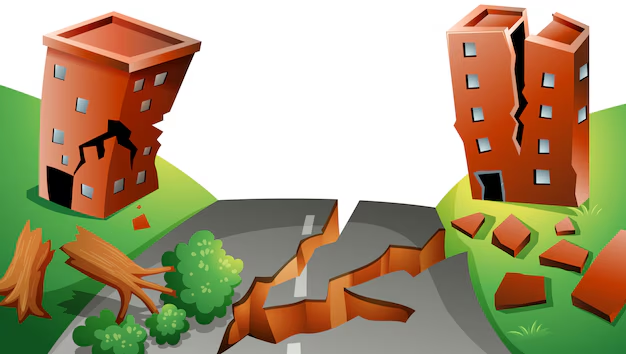Can you feel earthquakes in an rv better

Living or traveling in an RV comes with its unique experiences, including the way you perceive natural phenomena like earthquakes. The question of whether you can feel earthquakes better in an RV is one that sparks curiosity. In this comprehensive guide, we delve into the factors that influence earthquake perception in an RV, exploring the science, practical scenarios, and preparedness measures.
Why Are Earthquakes Felt Differently in an RV?
1. Structural Dynamics of RVs
Recreational vehicles (RVs) are built with lightweight materials and are designed for mobility rather than stability. Unlike fixed structures, RVs:
- Sit on suspension systems that amplify vibrations.
- Have a higher center of gravity, making them prone to swaying.
- Lack the foundation anchoring typical in permanent buildings.
These factors make RVs more sensitive to ground movements, allowing occupants to feel even minor tremors that might go unnoticed in a standard home.
2. RVs on Soft Ground vs. Hard Ground
The type of ground an RV is parked on plays a critical role:
- Soft Ground: Acts like a cushion, dampening vibrations and reducing the sensation of tremors.
- Hard Ground: Transfers seismic waves more efficiently, making quakes feel stronger.
Parking on a solid surface can increase the likelihood of feeling smaller quakes.
Comparing RV Earthquake Sensitivity to Traditional Structures
1. Permanent Homes
Homes with solid foundations tend to absorb and distribute seismic energy differently. While they may experience structural damage from large quakes, smaller tremors are often imperceptible to occupants.
2. High-Rise Buildings
High-rise buildings sway due to their height and flexibility, but their substantial weight can dampen minor tremors. This contrasts with the lightweight, mobile nature of RVs.
Factors That Affect Earthquake Perception in an RV
1. Proximity to the Epicenter
The closer an RV is to the epicenter of an earthquake, the more intense the shaking will feel. RV occupants near seismic zones are likely to experience more frequent and noticeable tremors.
2. Magnitude of the Earthquake
While minor earthquakes (below 3.0 on the Richter scale) may go unnoticed in traditional homes, they are often felt in RVs due to their sensitivity to movement.
3. Time of Day
Nighttime earthquakes may feel more pronounced in an RV as external distractions like traffic or ambient noise are reduced.
4. Weather Conditions
Windy conditions can mimic the sensation of an earthquake in an RV. It’s essential to distinguish between seismic activity and weather-induced swaying.

Preparing for Earthquakes in an RV
1. Secure Your RV
To minimize the impact of seismic activity:
- Use stabilizing jacks to reduce swaying.
- Park on level, stable ground whenever possible.
- Avoid parking near cliffs or unstable terrain.
2. Emergency Supplies
Keep an earthquake kit readily available, including:
- First-aid supplies.
- Non-perishable food and water.
- Flashlights and extra batteries.
- A battery-powered radio.
3. Develop an Evacuation Plan
In case of a severe earthquake, have a clear plan for evacuation. Know your surroundings and identify safe spots away from falling debris or landslides.
Signs of Earthquake Activity in an RV
- Sudden, sharp movements or jolts.
- Continuous swaying or vibrations without an apparent cause.
- Audible creaking or popping sounds in the RV structure.
If these signs occur, assess your environment and take appropriate safety measures.
What to Do During an Earthquake in an RV
1. Stay Inside
If you are inside the RV during an earthquake:
- Stay away from windows and unsecured items.
- Take cover under sturdy furniture or brace yourself against a solid interior wall.
2. Move to Open Space (If Safe)
If it is safe to exit, move to an open area away from trees, power lines, or other potential hazards.
3. Monitor Updates
Use a battery-powered radio or smartphone to stay informed about earthquake updates and emergency instructions.
Post-Earthquake Safety Tips for RV Occupants
- Inspect your RV for structural damage, including cracks or shifted components.
- Check for gas leaks, broken electrical lines, or water system issues.
- Avoid driving immediately after a quake as roads may be damaged or blocked.
Understanding the Role of RV Suspension
The suspension system of an RV is both a benefit and a challenge during earthquakes:
- Benefit: Absorbs minor shocks, protecting occupants from harsher jolts.
- Challenge: Amplifies certain frequencies of seismic waves, making vibrations more noticeable.
Conclusion
RVs offer a unique vantage point for experiencing natural events like earthquakes. Their mobility and lightweight design can enhance the perception of tremors, making even small earthquakes noticeable. Understanding the factors that affect earthquake sensitivity in an RV, along with proper preparation and safety measures, can ensure a secure and informed experience.



